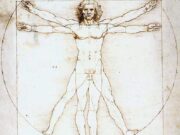A Men’s health fact – 1 in every 5 men die from preventable medical conditions
Following a £250m winter rescue package announced by ministers, GP’s are being told to see more patients face-to-face.
However, research shows men are 20% less likely to visit their GP than women, and an estimated 100,000 men have died prematurely from preventable men’s health medical conditions – that’s one in every five before the age of 65.
Being “too busy”, work commitments and overall stigma regarding men’s health are just some of the anecdotal reasons that men are putting off visiting their GP. However, conditions ranging from cancer to depression are going unnoticed and undiagnosed in men.
Earim Chaudry, Medical Director of men’s health platform Manual highlights the most common symptoms men are ignoring, and why they should seek expert advice before they become part of the one in five.
- Trouble Urinating
Difficulty urinating, or pain when urinating could be a sign of prostate disease or cancer, which shouldn’t be ignored. When the prostate is enlarged, it can press on the urethra (the tube that carries urine from the bladder) which can make it difficult to pass urine.
Prostate cancer is the most common type of cancer for men in the UK, according to the NHS. This type of cancer also develops slowly, which means it can go undetected for many years.
You might notice an increased need to urinate, straining while you urinate or the feeling as though your bladder isn’t fully emptied. While these symptoms don’t necessarily mean you have prostate cancer, it is important to visit your GP as a precaution.
- Changes in moles
It is important to get your moles checked regularly, and any changes in size, colour or shape should be reported to your GP.
Skin cancer is one of the most common cancers in the world, and currently affects more men than women in the UK, with over 147,000 new cases each year.
The two most common types of non-melanoma skin cancer are:
- Basal cell carcinoma (BCC), also known as a rodent ulcer, starts in the cells lining the bottom of the epidermis and accounts for about 75 in every 100 skin cancers
- Squamous cell carcinoma (SCC) starts in the cells lining the top of the epidermis and accounts for about 20 in every 100 skin cancers
While most moles are not the result of skin cancer, it is important to check your body for any new changes. Sings to look out for include the ABCDE rule: asymmetry, border raises, colour change, diameter changes and elevation changes.
- Unusual Lumps
While many cancers develop with age, testicular cancer is usually diagnosed in younger men from ages 15 to 49, with around 2,300 new cases every year.
Symptoms include new lumps on either of the testicles, which can either be painful or painless or any changes to the shape or feel of the testicle. It is also important to recognise what feels normal to you, to monitor any changes in the shape.
If you notice any changes or unusual lumps, be sure to get this checked with your GP. It is also one of the most treatable cancers in the UK, with 99% of men surviving for a year or more after being diagnosed.
- Chest Pain
Many men ignore pain in the chest and mistake this as either indigestion or lack of physical activity, however, this can be a symptom of either heart disease or heart failure.
Heart disease is the leading cause of death for men in the UK, with 119,000 men having a heart attack each year, compared to 69,000 women.
Chest pain should always be monitored, as this could be a symptom of heart failure or a heart attack. Lifestyle changes, as well as medicines, can control heart failure and reduce the chances of a heart attack occurring.
- Low Mood and Personality Changes
Changes in mood can be an early sign of depression. Suicide is the biggest single killer of men under 45, and males are three times more likely to commit suicide than women, according to ONS data.
Whilst a low mood doesn’t always result in depression, it is important to recognise the risk factors. Changes in personality or becoming withdrawn can also be a sign, and should be taken seriously.
If you notice any of these signs, reach out to your GP, or charities such as Mind and StrongMen offer confidential services to listen to your concerns.
Further signs of depression that men need to look out for:
- Feeling guilt or shame
- Giving away personal items or belongings
- Saying goodbye to people
- Looking for ways to harm themselves or others
- Feeling like a burden to others
- Extreme mood swings
- Loss of interest or pleasure in activities that used to be enjoyed
If you would like a bespoke quote or require more information on men’s health, please visit Manual or get in touch.
Here are 20 self care tips so you can take better care of yourself






































